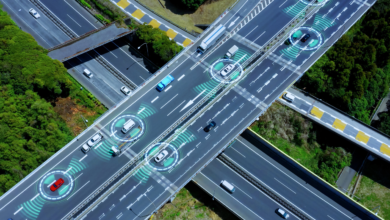The Art of Unblockers: A Comprehensive Guide to Bypassing Restrictions
The Art of Unblockers: A Comprehensive Guide to Bypassing Restrictions
Introduction
In today’s interconnected world, access to information is considered a fundamental right. However, the internet is not always a free and open space. Many governments, organizations, and even internet service providers impose restrictions on content, websites, and online services for various reasons. In response to these limitations, tools known as “unblockers” have emerged. In this comprehensive guide, we will explore the world of unblockers, their various types, how they work, the ethical implications, and the challenges they face.
Understanding Internet Blocks
Before diving into unblockers, it’s crucial to understand why and how internet blocks are implemented. These blocks can be broadly categorized into three main types:
Government Censorship
Governments in various countries often restrict access to certain websites or online content to control information flow, maintain political power, or enforce cultural norms. The Great Firewall of China is a well-known example of government censorship.
Geo-Restrictions
Geo-restrictions are imposed by content providers, such as streaming services and news websites, to comply with licensing agreements or protect regional markets. These restrictions limit access to content based on the user’s geographical location.
Network Restrictions
Internet service providers (ISPs) and network administrators may implement restrictions to manage network traffic, prevent malware, or enforce acceptable use policies. These restrictions can include blocking specific websites, ports, or protocols.
What Are Unblockers?
Unblockers, also known as circumvention tools or services, are solutions that help users bypass internet blocks and access restricted content. They operate by disguising the user’s online activities, making it appear as though they are accessing content from an unrestricted location or using an unblocked method.
Proxy Servers
Proxy servers act as intermediaries between a user’s device and the internet. When a user requests access to a blocked website, their request is first sent to the proxy server.
How VPNs Work
When a user connects to a VPN server, their real IP address is hidden, and they are assigned a new IP address from the server’s location. This makes it appear as if the user is accessing the internet from the VPN server’s location, bypassing geo-restrictions and government censorship.
Advantages and Disadvantages
VPNs offer several advantages, including enhanced privacy, security, and the ability to access blocked content. However, not all VPN providers are created equal, and users should choose reputable services to ensure their data remains secure. Additionally, some countries have implemented measures to block VPN traffic, so their effectiveness may vary depending on the location.
How Tor Works
Tor works by obscuring the user’s IP address and routing their traffic through the Tor network. When a user accesses a blocked website through Tor, it becomes challenging for network administrators or authorities to identify the origin of the request.
Advantages and Disadvantages
Tor excels in providing anonymity and bypassing censorship, making it a valuable tool for activists, journalists, and individuals in oppressive regimes. However, its reliance on a network of volunteer-operated nodes can result in slower internet speeds compared to VPNs. Additionally, accessing certain websites or services via Tor may be more challenging due to security measures in place.
DNS Manipulation Techniques
DNS manipulation involves altering the Domain Name System settings to access blocked websites. DNS is responsible for translating human-readable domain names (e.g., www.example.com) into IP addresses (e.g., 192.168.1.1) that computers can understand.
DNS Proxies
DNS proxies are services that redirect DNS queries to servers located in unrestricted regions. When a user attempts to access a blocked website, the DNS proxy resolves the domain name to an IP address that is not blocked, allowing access to the content.
Changing DNS Servers
Users can manually change their DNS server settings to use public DNS services, such as Google DNS or OpenDNS. These public DNS services often have fewer restrictions and can help bypass certain blocks imposed by ISPs.
Advantages and Disadvantages
DNS manipulation techniques are easy to implement and can be effective in bypassing certain types of blocks. However, they may not provide the same level of security and privacy as VPNs or Tor. Additionally, some governments have implemented measures to restrict access to public DNS services.
Privacy and Security
Unblockers can enhance online privacy and security by encrypting internet traffic. However, some users may exploit these tools for illegal activities, such as cyberattacks or accessing illicit content.
Compliance with Local Laws
Using unblockers to access restricted content may violate local laws and regulations. It’s essential for users to be aware of and respect the legal framework in their region.
Impact on Content Providers
Geo-restrictions are often implemented to protect the interests of content providers and ensure they receive fair compensation for their work. Bypassing these restrictions can negatively impact content creators and the sustainability of the creative industry.
Political and Social Activism
Unblockers play a crucial role in enabling political and social activism, allowing individuals to access information and communicate freely. However, they can also be used by oppressive regimes to bypass international sanctions and restrictions.
Technical Countermeasures
Governments and organizations continually develop technical countermeasures to block or detect the use of unblockers. This includes deep packet inspection (DPI) and blocking known IP addresses associated with unblocker services.
Legal and Regulatory Pressure
Some countries have introduced strict regulations and laws against the use of unblockers, making it illegal to bypass internet blocks. Violators may face fines, imprisonment, or other legal consequences.
Service Disruptions
Unblocker services themselves can face disruptions, such as server takedowns, DDoS attacks, or legal actions initiated by content providers.
Anonymity Risks
While unblockers aim to provide anonymity, users may unknowingly compromise their privacy by choosing untrustworthy or poorly configured services




